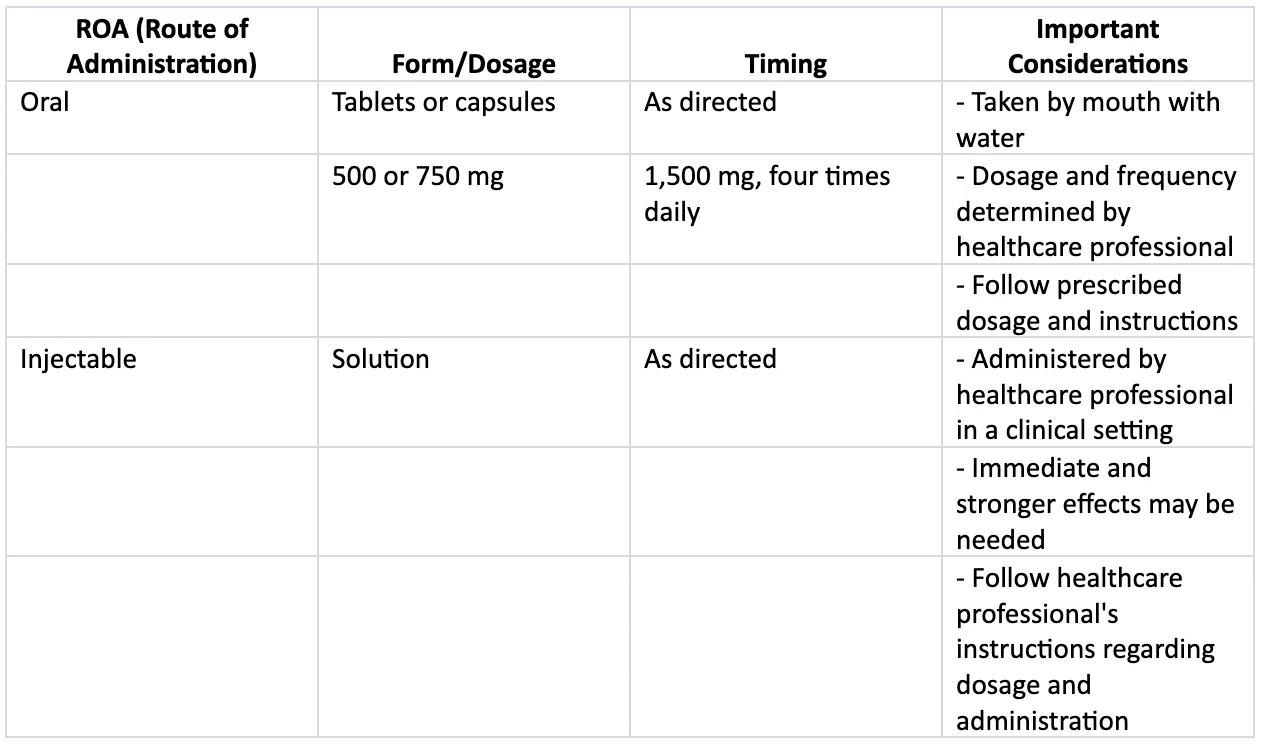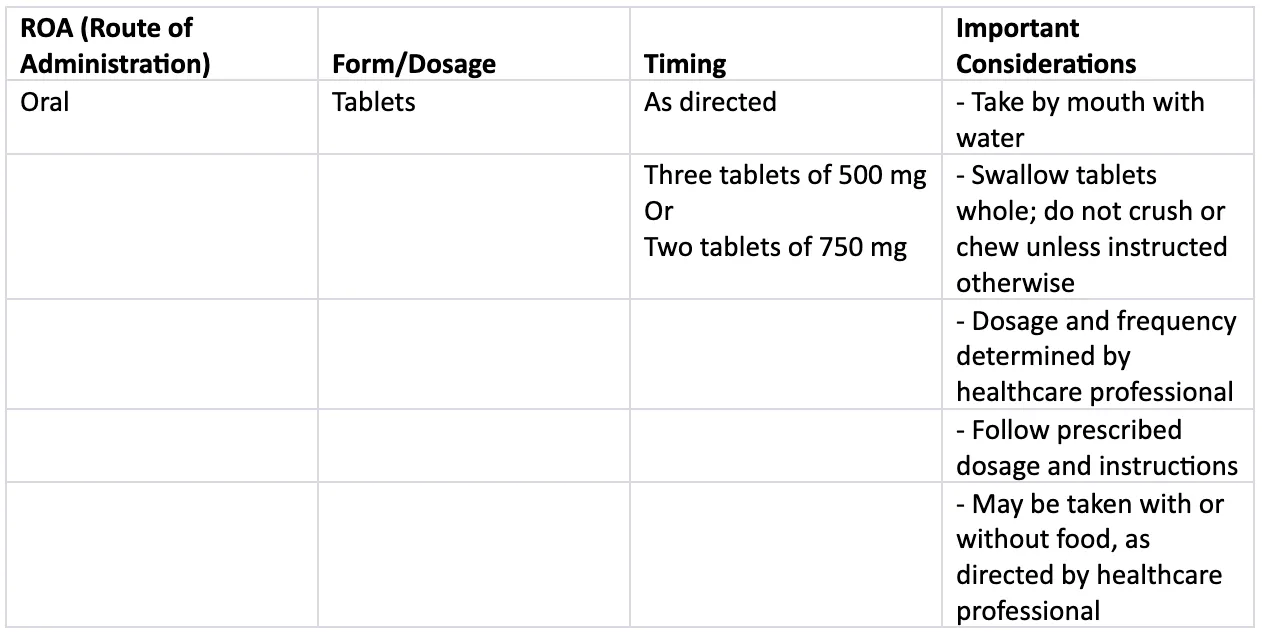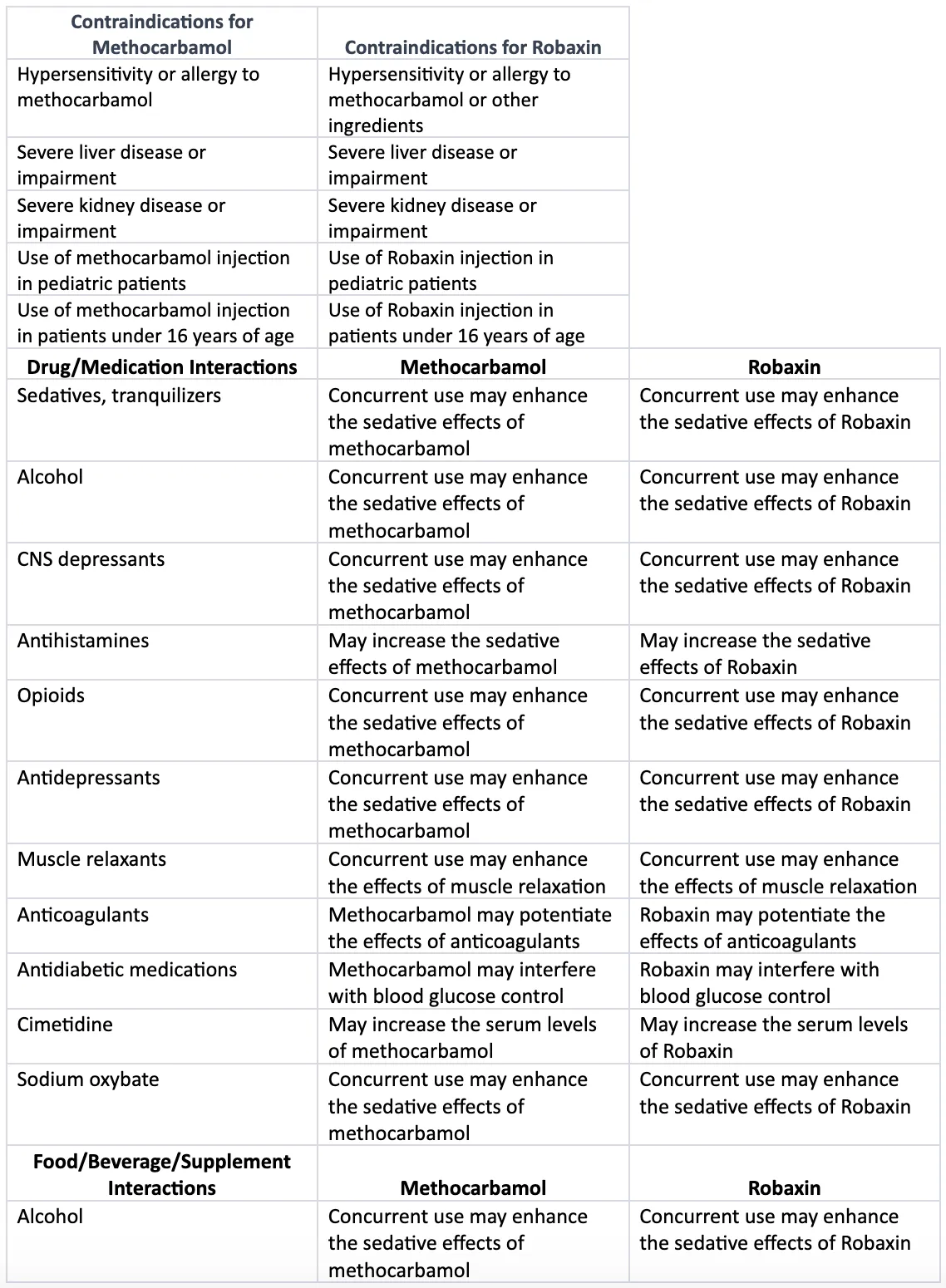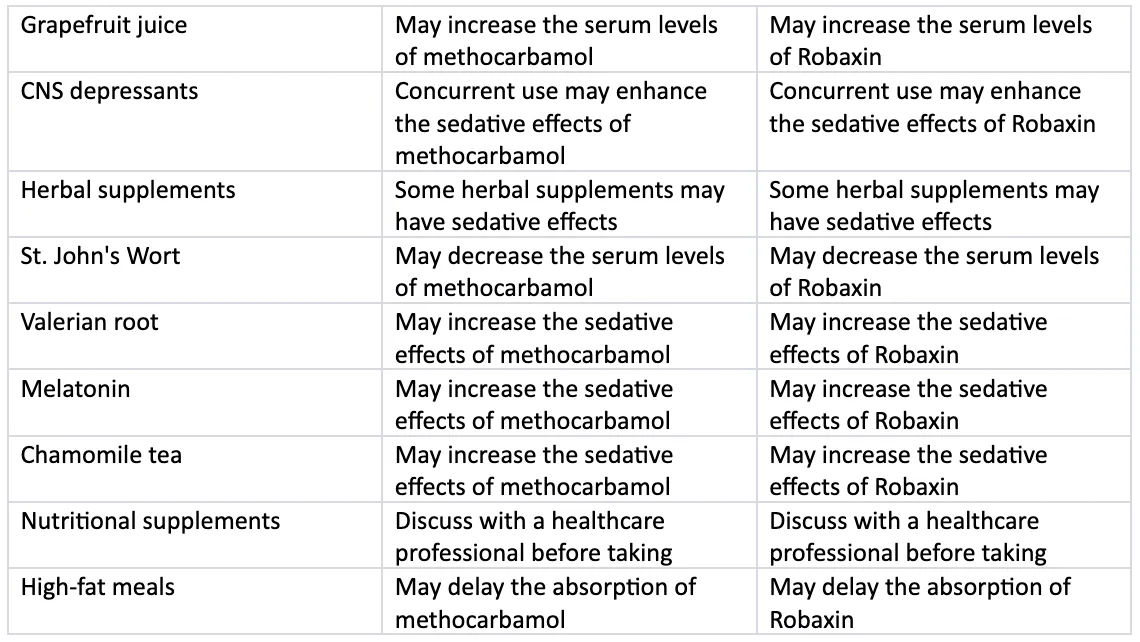Methocarbamol vs Robaxin
Introduction
When it comes to managing musculoskeletal conditions, medications such as Methocarbamol and Robaxin are commonly prescribed as muscle relaxants. These medications are used to alleviate muscle spasms, reduce pain, and improve mobility. Methocarbamol and Robaxin share the same active ingredient, methocarbamol, but Robaxin is a specific brand name for this medication.
About Methocarbamol and Robaxin
What is Methocarbamol
Methocarbamol is a medication that belongs to the class of drugs known as skeletal muscle relaxants. It is used to relieve muscle spasms and discomfort associated with acute musculoskeletal conditions, such as strains, sprains, and muscle injuries. Methocarbamol works by depressing the central nervous system, reducing muscle activity and promoting relaxation.
What Conditions is Methocarbamol Approved to Treat?
Methocarbamol is primarily approved for the treatment of acute musculoskeletal conditions associated with muscle spasms and discomfort. It is commonly used in the following conditions:
- Muscle Strains: Methocarbamol can help alleviate muscle spasms and pain caused by strains or sprains. These injuries often occur due to overexertion or sudden stretching of muscles.
- Back Pain: Methocarbamol may be prescribed for acute episodes of back pain, particularly when muscle spasms contribute to the discomfort.
- Muscle Injuries: It can be used to relieve muscle spasms and pain resulting from various types of muscle injuries, such as contusions or tears.
- Rehabilitation: Methocarbamol may be part of the treatment plan during rehabilitation after surgeries or orthopedic procedures to manage muscle spasms and promote recovery.
How Does Methocarbamol Work for Acute Musculoskeletal Conditions?
Methocarbamol works by depressing the central nervous system, specifically the brain and spinal cord, to provide relief for acute musculoskeletal conditions. While the exact mechanism of action is not fully understood, there are several proposed ways in which methocarbamol exerts its effects:
- Central Nervous System Depression: Methocarbamol acts as a sedative and depressant on the central nervous system. It has a calming effect on the brain and spinal cord, which helps reduce muscle spasms and promote relaxation.
- Skeletal Muscle Relaxation: Methocarbamol is thought to act directly on the skeletal muscles, decreasing muscle activity and tension. By dampening the excessive muscle contractions and spasms associated with acute musculoskeletal conditions, it can alleviate pain and discomfort.
- Analgesic Properties: Methocarbamol may also possess mild analgesic (pain-relieving) properties. By modulating the perception of pain in the central nervous system, it can help reduce the sensation of discomfort associated with muscle spasms.
What is Robaxin?
Robaxin is a brand name for the medication methocarbamol. It is a muscle relaxant that helps alleviate muscle spasms and discomfort that is caused by acute musculoskeletal conditions. Robaxin is available in various formulations, including oral tablets and injectable solutions.
What Conditions is Robaxin Approved to Treat?
Robaxin is typically prescribed as part of a comprehensive treatment plan for conditions such as muscle strains, sprains, back pain, and other acute musculoskeletal injuries. It is important to follow the prescribed dosage and consult with a healthcare professional for specific instructions and information regarding potential risks and interactions with other medications.
How Does Robaxin Work for Musculoskeletal Conditions?
The active ingredient in Robaxin, methocarbamol, works by depressing the central nervous system, reducing muscle activity and promoting relaxation. It is believed to act on the spinal cord and brain to inhibit nerve impulses or pain signals that cause muscle spasms. Methocarbamol does not directly relax muscles but rather works on the nervous system to provide relief.
Effectiveness
How Effective are Methocarbamol and Robaxin for Treating Musculoskeletal Conditions?
Methocarbamol and Robaxin are extremely effective in treating musculoskeletal conditions. Here are some successful studies to prove their effectiveness:
- A study published in the journal "The National Liberty of Medicine" evaluated the use of methocarbamol in patients with acute low back pain. The study found that methocarbamol provided significant pain relief and improved functional outcomes compared to placebo.
- Another study published investigated the efficacy of Robaxin in patients with acute musculoskeletal conditions. The results showed that methocarbamol was effective in reducing muscle spasm and improving subjective pain relief.
- Another review analyzed several clinical trials and concluded that methocarbamol, along with other muscle relaxants, was effective in reducing muscle spasms and pain associated with musculoskeletal conditions in cirrhotic patients.
These studies indicate that methocarbamol and Robaxin can be effective in providing relief for musculoskeletal conditions characterized by muscle spasms.
Dosage Information
How is Methocarbamol administered for Musculoskeletal Conditions?
Methocarbamol can be administered for musculoskeletal conditions in different forms, including oral tablets and injectable solutions. The specific administration method will depend on the severity of the condition, the individual's response, and the healthcare professional's recommendation. Here are the common methods of administration:
- Oral Tablets: Methocarbamol is typically available as oral tablets or capsules. The tablets are taken by mouth with water. The dosage and frequency will be determined by the healthcare professional based on the severity of the condition. It is important to follow the prescribed dosage and instructions provided by the healthcare professional.
- Injectable Solution: In some cases, particularly when immediate and stronger effects are needed, methocarbamol may be administered via injection. This is typically done in a healthcare setting, such as a hospital or clinic, under the supervision of a healthcare professional.
Methocarbamol dosage information
Certainly! Here's the information organized in a table format:

How is Robaxin administered for Musculoskeletal Conditions?
Robaxin is administered for musculoskeletal conditions primarily in the form of oral tablets. The tablets are taken by mouth with water as directed by a healthcare professional. The dosage and frequency of Robaxin will depend on the severity of the condition and the individual's response. It is crucial to adhere to the prescribed dosage and follow the instructions provided by the healthcare professional.
The tablets should be swallowed whole and not crushed or chewed unless otherwise instructed. The timing of administration may vary, but it is typically recommended to take Robaxin with or without food. It is important to note that the specific administration instructions may differ based on the individual's condition and the healthcare professional's guidance. Therefore, it is advisable to consult with a healthcare professional for personalized advice on how to administer Robaxin for musculoskeletal conditions.
Robaxin Dosage Information

Side Effects
What are the most-common side effects of Methocarbamol?
Common side effects associated with methocarbamol can include:
- Drowsiness: Methocarbamol may cause drowsiness or sedation. It is important to avoid activities that require alertness, such as driving or operating machinery, until you know how the medication affects you.
- Dizziness: Some people may experience dizziness while taking methocarbamol. It is advised to get up slowly from a sitting or lying position to minimize the risk of falls.
- Lightheadedness: Methocarbamol can cause a feeling of lightheadedness or a sensation of spinning (vertigo).
- Upset stomach: Methocarbamol may cause gastrointestinal disturbances, such as nausea, vomiting, or stomach discomfort. Taking the medication with food can help reduce these symptoms.
- Blurred vision: In some cases, methocarbamol may cause temporary blurred vision or difficulty focusing.
- Allergic reactions: Although rare, some individuals may experience an allergic reaction to methocarbamol. Symptoms may include rash, itching, swelling, severe dizziness, or difficulty breathing. Seek immediate medical attention if you experience any signs of an allergic reaction.
Are there Any Potential Serious Side Effects of Methocarbamol?
* If you experience any of these serious side effects, seek medical help immediately:
- Allergic reactions: Some individuals may have a severe allergic reaction to methocarbamol, which can manifest as hives, difficulty breathing, swelling of the face, lips, tongue, or throat. An allergic reaction requires immediate medical attention.
- Severe dizziness or fainting: Methocarbamol can cause a drop in blood pressure, leading to severe dizziness or fainting. If you experience these symptoms, it is important to seek medical help.
- Slow or shallow breathing: Methocarbamol may depress the central nervous system, leading to respiratory depression. If you have difficulty breathing or notice your breathing becoming slow or shallow, it requires immediate medical attention.
- Jaundice: Although rare, methocarbamol can cause liver-related side effects, including yellowing of the skin or eyes (jaundice). If you observe any signs of liver dysfunction, it is important to seek medical evaluation.
- Unusual bleeding or bruising: Methocarbamol can affect blood clotting in some individuals, leading to unusual bleeding or bruising. If you notice excessive bleeding or unexplained bruising, consult a healthcare professional.
What are the Most-Common Side Effects of Robaxin?
Below are some of the most common side effects of Robaxin:
- Dry mouth: Some individuals may experience a dry sensation in the mouth while taking Robaxin. It can be helpful to drink plenty of water and keep the mouth moisturized by using sugar-free gum or lozenges.
- Headache: Robaxin may occasionally cause headaches as a side effect. If the headaches persist or become severe, it is advisable to consult with a healthcare professional.
- Fatigue or weakness: Methocarbamol can cause feelings of fatigue or weakness in some individuals. It is important to rest as needed and avoid activities that require alertness if you feel excessively tired.
- Upset stomach or gastrointestinal discomfort: Robaxin may cause gastrointestinal disturbances, including upset stomach, indigestion, or diarrhea. Taking the medication with food or adjusting the dosage as advised by a healthcare professional may help alleviate these symptoms.
- Coordination difficulties: Methocarbamol might affect coordination or motor skills in some individuals, leading to difficulties with tasks requiring fine motor control. If you experience significant impairment, it is recommended to avoid activities that could be unsafe or seek medical advice.
Are there any Potential Serious Side Effects of Robaxin?
* If you experience any of these serious side effects, seek medical help immediately:
- Severe allergic reactions: In rare cases, Robaxin can cause a severe allergic reaction known as anaphylaxis. Signs of an allergic reaction may include difficulty breathing, chest tightness, swelling of the face, lips, tongue, or throat, and rash or hives. Anaphylaxis is a medical emergency, and immediate medical attention is necessary.
- Severe skin reactions: Rarely, Robaxin can cause severe skin reactions, such as Stevens-Johnson syndrome or toxic epidermal necrolysis. These conditions are characterized by a widespread rash, blisters, and skin peeling. If you experience these symptoms, it is critical to seek immediate medical assistance.
- Blood disorders: Methocarbamol may rarely affect the production of blood cells, leading to conditions such as agranulocytosis (severely low white blood cell count) or thrombocytopenia (low platelet count). Symptoms can include persistent fever, sore throat, easy bruising or bleeding, and general weakness. If you experience any of these symptoms, urgent medical attention is necessary.
- Confusion or hallucinations: Although rare, some individuals may experience confusion, hallucinations, or other changes in mental status while taking Robaxin. If you or a loved one experiences these symptoms, it is essential to seek medical evaluation.
Contraindications and Interactions
Warnings and General Precautions for Methocarbamol and Robaxin
- Allergic reactions: Both methocarbamol and Robaxin can potentially cause allergic reactions in some individuals. If you have a known allergy to methocarbamol or any other ingredients in the medication, it is important to avoid its use. Seek immediate medical attention if you experience signs of an allergic reaction, such as rash, itching, swelling, dizziness, or difficulty breathing.
- Sedation and drowsiness: Methocarbamol and Robaxin can cause drowsiness, sedation, or dizziness. It is advised to avoid activities that require mental alertness, such as driving or operating machinery, until you know how the medication affects you. Alcohol and other central nervous system depressants should be avoided while taking these medications, as they can enhance the sedative effects.
- Liver and kidney impairment: Individuals with pre-existing liver or kidney problems should use methocarbamol and Robaxin with caution. Adjustments to the dosage or frequency may be necessary, and close monitoring may be required. It is important to inform your healthcare professional about any liver or kidney conditions you have before starting these medications.
- Elderly population: The elderly may be more susceptible to the sedative effects of methocarbamol and Robaxin. They should be cautious when taking these medications and may require lower doses.
- Drug interactions: Methocarbamol and Robaxin can interact with other medications, including sedatives, tranquilizers, and alcohol. Inform your healthcare professional about all the medications, supplements, and herbal products you are taking to avoid potential drug interactions.
- Pregnancy and breastfeeding: The use of methocarbamol and Robaxin during pregnancy or breastfeeding should be discussed with a healthcare professional. It is important to weigh the potential benefits against the potential risks to the developing fetus or infant.
Contraindications and Important Interactions for Methocarbamol and Robaxin


Cost Comparision
How Much do Methocarbamol and Robaxin Cost?
The price of a 500 mg oral tablet of methocarbamol is approximately $12 for a pack of 18 tablets, which may vary depending on the pharmacy you choose. The mentioned prices are applicable to customers who pay in cash and may not be applicable to those with an insurance plan.
Similarly, the price of a 750 mg oral tablet of Robaxin-750 is approximately $81 for a pack of 20 tablets, which may vary depending on the pharmacy you choose.
Popularity of Methocarbamol and Robaxin
Methocarbamol is a widely used muscle relaxant medication and was approved by the FDA in 1957. It has been available on the market for many years and is commonly prescribed for the management of acute musculoskeletal conditions. It is often used as part of a comprehensive treatment plan that includes rest, physical therapy, and other measures.
Robaxin is one of the brand names for methocarbamol. It is a well-known brand in the market and is often recognized by healthcare professionals and patients. However, the popularity of Robaxin may also vary depending on factors such as marketing efforts, availability, and regional preferences.
Conclusion
Takeaway
In conclusion, Methocarbamol and Robaxin (which contains methocarbamol) are muscle relaxant medications commonly used for the treatment of acute musculoskeletal conditions. Both medications work by acting on the central nervous system to alleviate muscle spasms and promote muscle relaxation. While they have similar mechanisms of action and are used for similar indications, Robaxin is a specific brand name for methocarbamol.
The effectiveness of Methocarbamol and Robaxin in treating musculoskeletal conditions has been supported by clinical studies, which have shown their ability to provide relief from muscle spasms and improve mobility. However, individual responses to these medications may vary, and the choice between Methocarbamol and Robaxin may depend on factors such as availability, cost, and personal preferences.
It is important to note that both medications may cause common side effects such as drowsiness, dizziness, and nausea. Serious side effects are rare but can occur in certain individuals, and it is crucial to be aware of the potential risks and consult with a healthcare professional before starting these medications.
Furthermore, both Methocarbamol and Robaxin may interact with other drugs, including sedatives, alcohol, and certain medications. It is important to disclose all medications and supplements being taken to avoid potential drug interactions. It is advisable to consult with a healthcare professional for personalized advice and to discuss any specific medical conditions or concerns before initiating treatment with either medication.